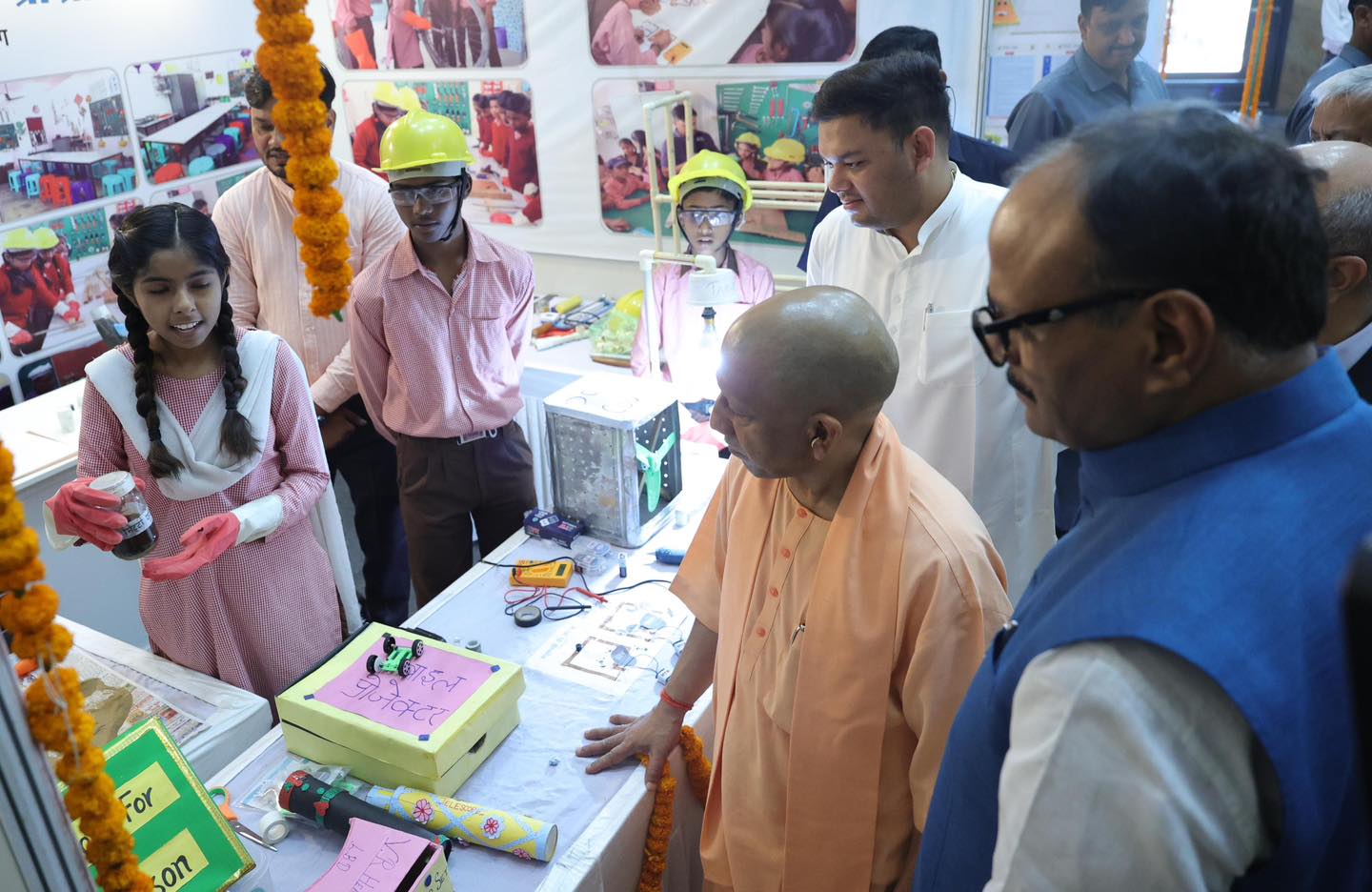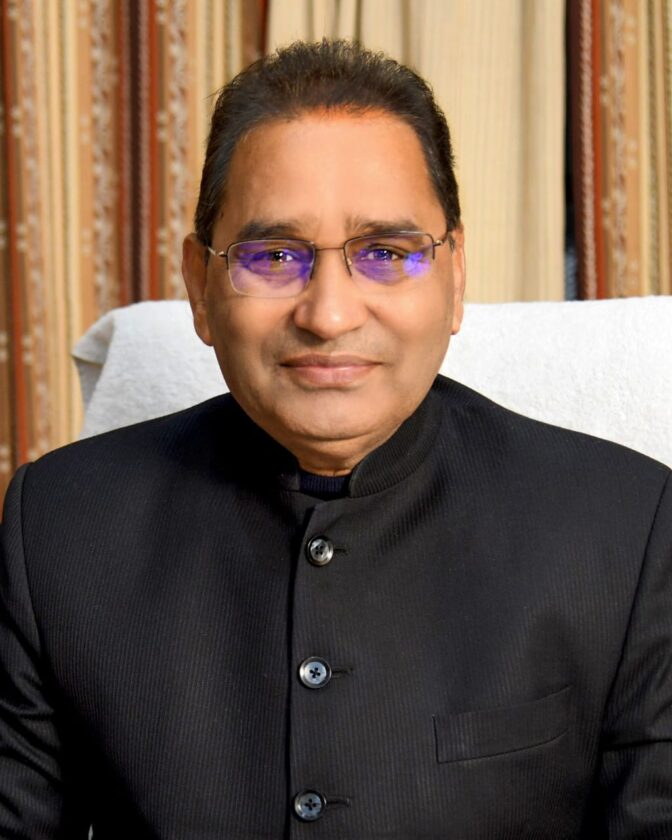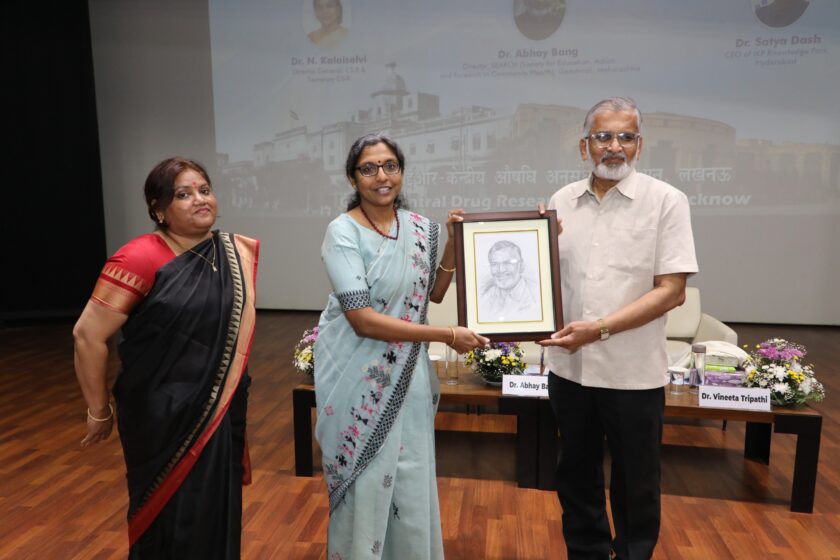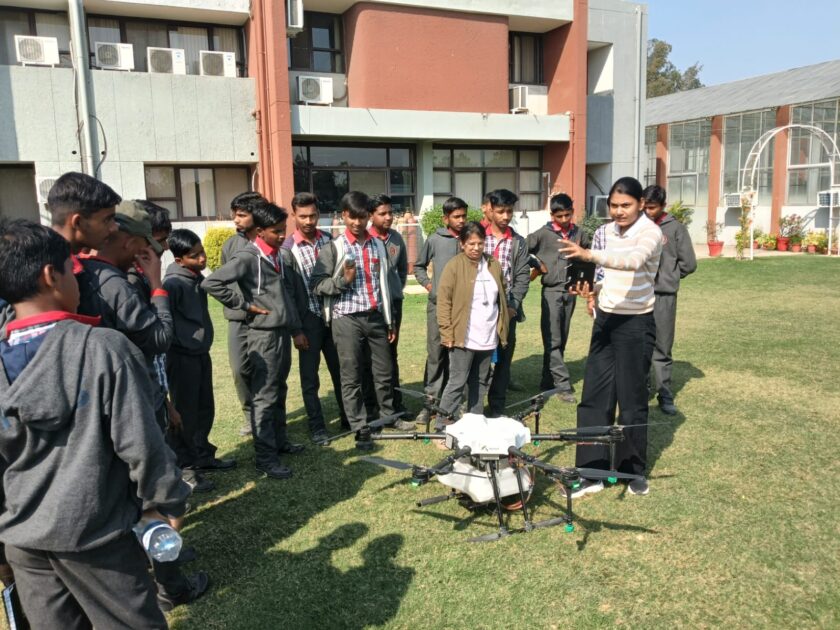From marginalisation to innovation: Children of workers and COVID orphans showcase SpaceTech projects; ISRO lauds their talent
Lucknow — Once deprived of basic education, children from Uttar Pradesh’s Atal Residential Schools are now presenting their technological innovations before scientists from ISRO. These government-run schools, established for children of registered labourers and those orphaned during the COVID-19 pandemic, have transformed into incubators of talent and self-confidence, setting new standards in holistic and inclusive education.
Currently operating in all 17 divisions of Uttar Pradesh, the Atal Residential Schools (ARS) are home to 10,947 students, with a unique 50:50 gender ratio—reflecting the state’s commitment to women’s empowerment. The state-of-the-art integrated campuses provide free education along with residential facilities, nutritious meals, sports training, a well-equipped library, and skill development programs.
Innovation on Display at SpaceTech Expo 2025
The scale of transformation was visible at the SpaceTech Expo 2025 held on January 25 at the Atal Residential School in Lucknow, where students from all 17 divisions showcased their projects in AI, drone technology, and space science. Their work impressed attendees and experts alike, turning heads with their scientific acumen and imaginative solutions.
Highlighting this achievement, Director of ISRO’s Space Applications Centre (SAC) visited the Expo and lauded the children’s efforts. Several meritorious students had also previously visited ISRO-SAC in Ahmedabad, where they interacted with top scientists and experienced India’s space advancements firsthand—an experience that significantly boosted their curiosity and confidence.
“Atal Schools are Laboratories of Nation-Building”: CM Yogi
Chief Minister Yogi Adityanath, who inaugurated one such school in Bareilly earlier this year, described Atal Residential Schools as “models of integrated education”. He noted that these institutions not only offer academic learning but also create a nurturing ecosystem with facilities for living, playing, and developing life skills. “Earlier, the construction cess collected under BOCW (Building and Other Construction Workers) was misused. Under the guidance of PM Modi, we have channelled it to build futures for the most deserving children,” he said.

A New Generation is Rising
What sets these schools apart is their focus on futuristic learning. Children are not just reading textbooks; they are being trained in AI, drones, robotics, and space technology. They are ideating and innovating. These are no longer just schools—they are laboratories of talent, where every child dreams of becoming a scientist, an engineer, or a changemaker, and is being given the tools to do so.
Teachers undergo regular training and orientation programs to make learning more effective and engaging. Admissions are based on entrance tests and students follow the CBSE curriculum, ensuring uniform and quality education.
Transforming the Lives of the Marginalised
Atal Residential Schools are more than just educational institutions—they are a social revolution. For children of workers and those orphaned during the pandemic, these schools offer dignity, opportunity, and hope. As the proposed inauguration of the Moradabad ARS nears, the initiative continues to expand its reach and impact.
This initiative under the double-engine government exemplifies governance with compassion. By empowering the children of the most marginalised, Uttar Pradesh is not just shaping individual futures—it’s investing in the future of the nation.
Quote:
“Environmental or space education must go beyond theory. When children engage through creativity, innovation, and real-world application, they evolve into aware and responsible citizens. Initiatives like Atal Schools show that given the right opportunity, every child can soar.”
– Sandeep Singh, Basic Education Minister, Uttar Pradesh









